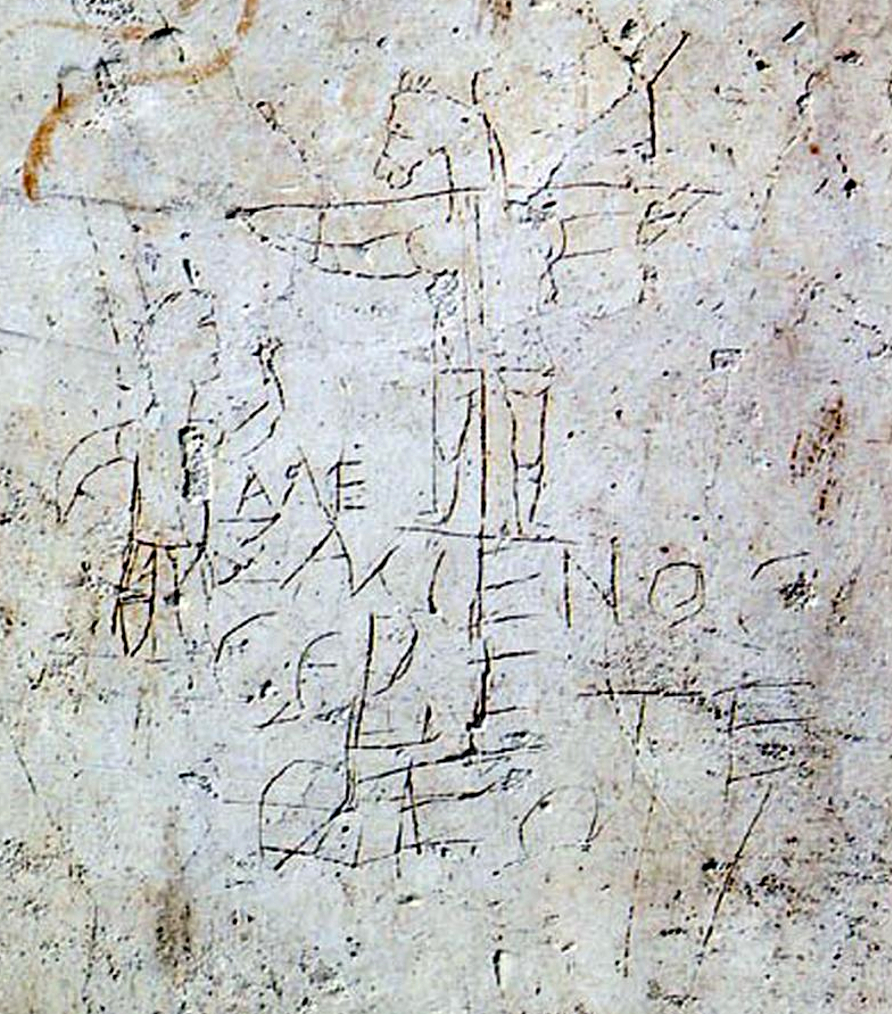Onolatry on:
[Wikipedia]
[Google]
[Amazon]
 Onolatry is the supposed worship of the
Onolatry is the supposed worship of the
''Tiberio...'', of Zvi Yavetz, on ''books.google.it''
{{Donkeys Anti-Christian sentiment in Europe Antisemitism in Europe Animal worship Set (deity)
 Onolatry is the supposed worship of the
Onolatry is the supposed worship of the donkey
The donkey or ass is a domesticated equine. It derives from the African wild ass, ''Equus africanus'', and may be classified either as a subspecies thereof, ''Equus africanus asinus'', or as a separate species, ''Equus asinus''. It was domes ...
. In Imperial Rome
The Roman Empire ruled the Mediterranean and much of Europe, Western Asia and North Africa. The Romans conquered most of this during the Republic, and it was ruled by emperors following Octavian's assumption of effective sole rule in 27 BC ...
, the charge of onolatry was used to taunt the Jews and Jewish Christians. The association of Jews with donkeys was a common feature of Hellenic as well as Latin ethnographic and historical writings, and included accusations of worshipping a golden donkey head and even sacrificing foreigners to it at intervals. A famous example of this is the Alexamenos graffito.
The charge was likely first used against Jews in Egypt, where donkeys were at some points associated with Set
Set, The Set, SET or SETS may refer to:
Science, technology, and mathematics Mathematics
*Set (mathematics), a collection of elements
*Category of sets, the category whose objects and morphisms are sets and total functions, respectively
Electro ...
, the murderer of Osiris
Osiris (, from Egyptian ''wikt:wsjr, wsjr'') was the ancient Egyptian deities, god of fertility, agriculture, the Ancient Egyptian religion#Afterlife, afterlife, the dead, resurrection, life, and vegetation in ancient Egyptian religion. He was ...
who is in turn destroyed by Isis
Isis was a major goddess in ancient Egyptian religion whose worship spread throughout the Greco-Roman world. Isis was first mentioned in the Old Kingdom () as one of the main characters of the Osiris myth, in which she resurrects her sla ...
. It is first attested in the late first century BCE, and was used against Christians extensively in the first and second centuries CE before disappearing almost entirely in the third. The accusation against the Christians is discussed by Tertullian
Tertullian (; ; 155 – 220 AD) was a prolific Early Christianity, early Christian author from Roman Carthage, Carthage in the Africa (Roman province), Roman province of Africa. He was the first Christian author to produce an extensive co ...
and Minucius Felix
__NOTOC__
Marcus Minucius Felix (died c. 250 AD in Rome) was one of the earliest of the Latin apologists for Christianity.
Nothing is known of his personal history, and even the date at which he wrote can be only approximately ascertained as betw ...
, among other early Christian apologists.
Arthur Bernard Cook, in an 1894 article, argued that there had been an ancient Mycenaean cult practising onolatry, citing a fresco depicting donkey-headed figures found near a sacrificial pit and several carved gems apparently showing people wearing donkeys' heads and skins holding sacrificial objects, and further describing the diverse roles asses played in Ancient Greek mythology. His interpretation was challenged at the time by Andrew Lang
Andrew Lang (31 March 1844 – 20 July 1912) was a Scottish poet, novelist, literary critic, and contributor to the field of anthropology. He is best known as a folkloristics, collector of folklore, folk and fairy tales. The Andrew Lang lectur ...
in Longman's Magazine
''Longman's Magazine'' was first published in November 1882 by C. J. Longman, publisher of Longmans, Green & Co. of London. It superseded ''Fraser's Magazine'' (published 1830 to 1882). A total of 276 monthly issues had been published when the ...
.
See also
* Alexamenos graffito * Cultural references to donkeys *History of early Christianity
Early Christianity, otherwise called the Early Church or Paleo-Christianity, describes the historical era of the Christian religion up to the First Council of Nicaea in 325. Christianity spread from the Levant, across the Roman Empire, and bey ...
References
External links
''Tiberio...'', of Zvi Yavetz, on ''books.google.it''
{{Donkeys Anti-Christian sentiment in Europe Antisemitism in Europe Animal worship Set (deity)